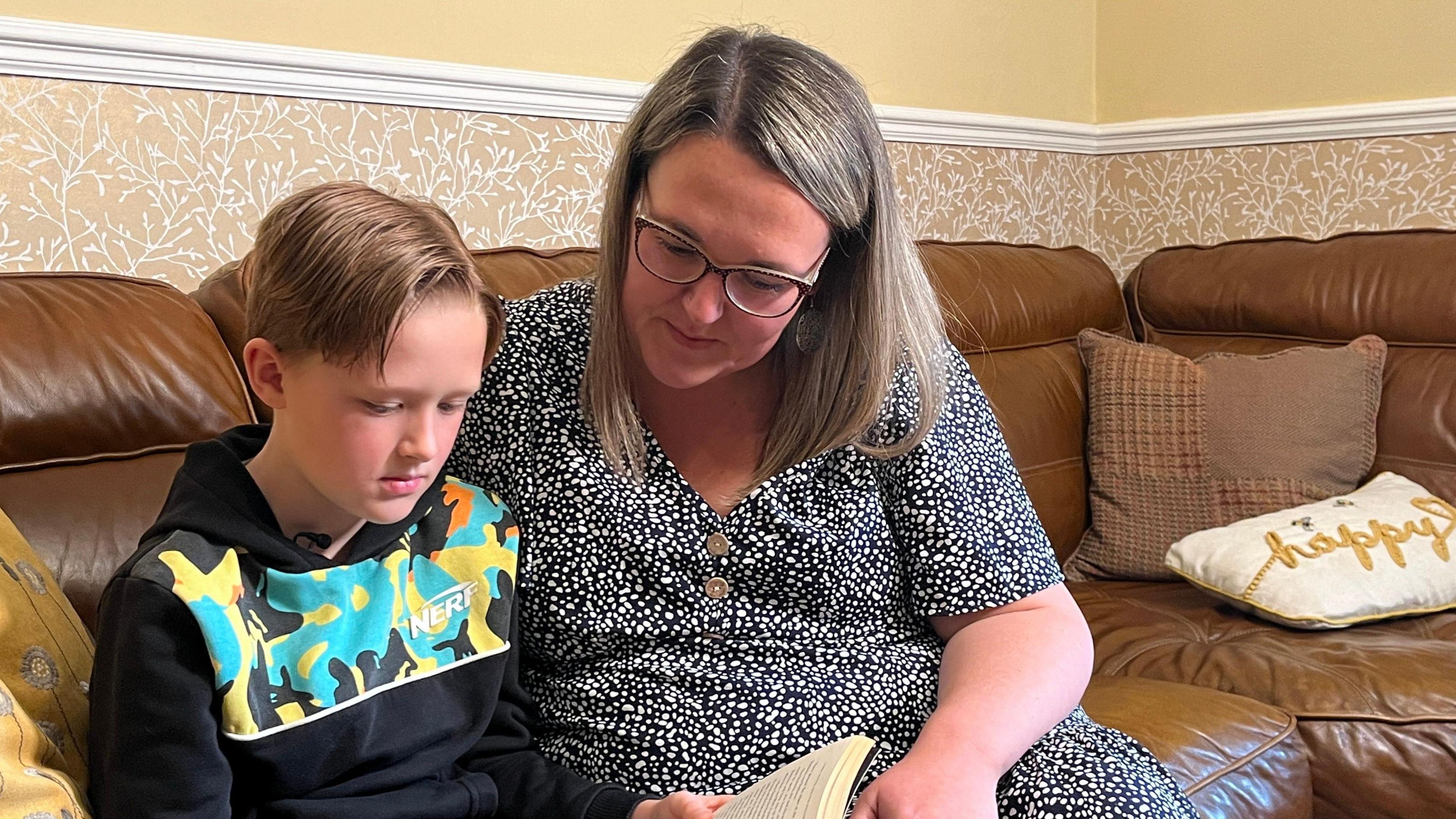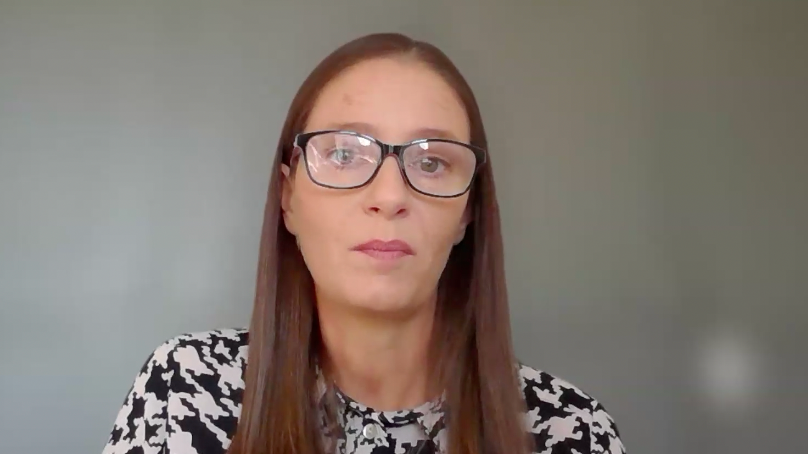'You're sending them into the lion's den'

Tourette's syndrome does not affect someone's ability to learn - but parents said suppressing tics leaves kids exhausted and unable to focus in class
- Published
Parents of children with Tourette's syndrome are warning that a lack of support and understanding in schools could wreck their chances of an education.
The BBC spoke with 18 parents from the south of England, most of whom shared similar stories.
Almost all complained their children had been shouted at for movements and sounds they could not control, and in some cases that had led to them avoiding school for weeks at a time.
The Department for Education said it was committed to supporting young people living with Tourette's syndrome.
One mother began to tear up as she described feeling her child's education "slipping through my fingers".
Tourette's syndrome is a condition that causes people to make movements or sounds - called tics - involuntarily.
It affects about 1-2% of school children in the UK - about the same proportion as children diagnosed with autism spectrum disorder (ASD).
Many people with Tourette's can suppress their tics for a while, but often describe the experience as exhausting and uncomfortable.
One child said suppressing their coughing tic had left them with an itchy feeling of a "flower in their throat".
For some, trying to suppress their tics in class led to them bottling up their anxiety and avoiding school entirely.
Many parents said that when their child was suppressing tics, it made their condition less visible and it became harder to access support from schools.
Research on Tourette's in UK schools in 2022 found that 50% of school staff , externalhad never received any training on the condition.
'I can't help Tourette's'
Donella, from Hampshire, is the mum of eight-year-old David who has Tourette's.
She said: "He was coming home absolutely exhausted because he was holding all his tics in because he didn't want to do them in school - because he'd get told off".
Donella said that had led to all of his tics coming out at home and sometimes he had been unable to get his fork in his mouth to eat dinner because of an explosion of facial tics.

Parents said their children had been shouted at in the classroom for movements and sounds they cannot control
David said his teachers did not always understand that he cannot control his tics.
"She [my teacher] told me: 'Stop whistling! The children are trying to focus', and things like that," said David. "I can't help Tourette's. Sometimes it takes over."
Before David was diagnosed, Donella said, the school had prevented several referrals for an educational psychologist to come to school to assess him.
David's school said in a statement: "We are aware of concerns regarding behaviours associated with specific diagnoses, and our staff are fully informed about such conditions, ensuring that behaviours like involuntary tics are understood and not seen as misbehaviour."
Endless waiting lists
Most parents struggled to get a diagnosis for their child, but without one, they said schools would not take their concerns seriously.
Emma McNally, CEO of research charity Tourette's Action, said this was one of the biggest problems.

A lack of a national 'blueprint' for Tourette's services means support is patchy and differs greatly from place to place, according to Tourette's Action
"It's not like they’re on a waiting list to be seen - they spend a lot of time on a waiting list to be told, 'we're not the right service to treat you' - then they get put on another waiting list."
She said even if someone did receive a diagnosis, they were usually discharged without treatment.
Fighting for education
If a school cannot meet a child's needs, they should be referred to the local authority to be assessed for an education, health and care plan (EHCP) for extra support.
Another mum, who the BBC is calling Louise to avoid identifying her son, said she had been trying to get him assessed for one of those plans for more than a year.
She said her son missed school for weeks at a time.
"It provokes panic attacks, tic attacks, which can go on well into the night," said Louise.
"So you're sending them into the lion's den essentially - day after day after day."
Related links
- Published17 September 2023
- Published6 May 2024
- Published13 January 2024
- Published9 August 2023
She said she had been forced to pay for a private educational psychologist to assess her son, so that she could evidence his need for extra support.
Their report found that her son required a full-time, one-to-one teaching assistant.
Despite that, the council refused to assess her son for a plan. She hopes to challenge that decision.
"We think it's a strong possibility, if we don't get something in place now, he won't go to secondary school - at all," said Louise.
"We're just completely lost, and nobody is helping," she said. "We're having to fight for it, and we shouldn't have to fight for our child's education."
A spokesperson for the Department for Education said: "We are committed to supporting young people living with Tourette's syndrome and other tic disorders and recognise the importance of research to better understand and find new treatments for Tourette's syndrome and other long-term conditions."
Get in touch
Do you have a story BBC Hampshire & Isle of Wight should cover?